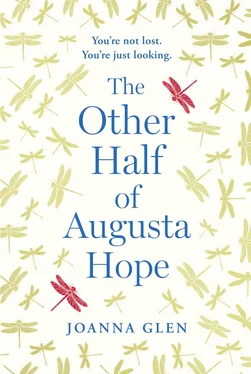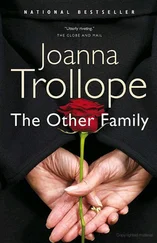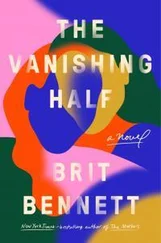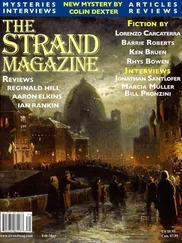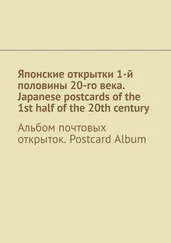When I started my research into the sky, a cloud seemed a simple thing to me – a puff of floating water-vapour, and that was that. But the more I researched, the more cloud meant. The five letters were elastic, and they stretched through the years, as I realised that someone somewhere was probably doing their PhD on clouds, or on one tiny aspect of clouds, and maybe that would take up half their brain for their whole life.
It made me feel dizzy when I realised everything the simple word cloud carried around inside it. It made me feel dizzy when I realised that this was true of every word there is. It made me feel both dizzy and small – and, in my dizziness and smallness, I watched the clouds go by, and they looked like speech bubbles. As I grew older and started to spend more time inside the row of dictionaries lined up on the reference shelves of the library, I put words inside them, words I loved, in alphabetical order A–Z. Acanthus, admiral, aeronaut, beanstalk, bergamot, chrysanthemum, calabash, cicada. I thought about the size of different words – or should I say the depth, or the space they take up? I wasn’t referring to the number of letters they had but to what manner of thing or things were held within those letters.
I thought of hundreds and thousands of words all meaning hundreds and thousands of things, and it made me realise that, in the course of my own life, I would end up knowing almost nothing. But the almost nothing I ended up knowing would, I supposed, be different from the almost nothing other people would end up knowing, and between us all, I thought we would know a bit more than almost nothing. And, of course, death would come along, and everything we’d found out would be buried with us. Which seemed a terrible waste. Shouldn’t we first be tipped upside down to let all our knowledge out – like when you empty a piggy bank of its coins?
For days, I went around chewing Burundi like you might chew gum. Burundi, I discovered, was a big, capacious word, and it stretched, stretched, stretched. Because Burundi meant a million things.
It was made up of 27,816 square kilometres, much of it hilly and mountainous, and 10 per cent of it water, mainly the huge Lake Tanganyika which contained 250 species of cichlid fish, rainbow-striped and dazzling.
There were about ten and a half million people living in Burundi – Hutu (85 per cent), Tutsi (14 per cent) and Twa (1 per cent) – and most of them were sad. Their land was running out of soil, their forests were running out of trees and the ones who hadn’t been killed by each other were dying of AIDs.
Only the other day, when they did one of those world happiness surveys, Burundi turned out to be the world’s least happy nation in 2016.
Burundi was my first unlikely choice before I realised how much I like unlikely choices – and, once I’d picked it, I couldn’t let it go. I tried to imagine how different my life would have been if I’d been born there and not here. And I did my best to keep up with what was going on there through the years, including writing letters to each one of its American ambassadors.
The American ambassadors never so much as replied to me, so I turned my attention back to words, which seemed more readily available.
The word Asda was created in 1965, when the As quith brothers approached Associated Da iries to run the butchery departments in their chain of shops.
If you made a similar combination out of Ju lia and Augu sta , I worked out that you could call us Justa – and we would be one. Like we were, we really were – back in 1999 when we were both nine years old and wearing matching pleated skirts, modelled on Jane in the interminable Peter and Jane series, from my mother’s second-hand Ladybird book collection.
Justa , I would later discover, is the feminine of justus , a Latin adjective meaning just and fair and proper and reasonable and a load of other things besides.
Asda is a word which sums up the life I was born into, a life in which Asda was news. And the news was that there was going to be a massive new Asda as part of the massive new shopping centre in Hedley Green, out on the main road. This was massive news in our house, in Willow Crescent, in the school playground, in Hedley Green high street – in 1999.
This new Asda would be the biggest Asda in Hertfordshire, or the South of England, or the whole world, depending who you were listening to. It was going to be huge and white and made of curved glass – like a great big UFO. Everyone was excited. Except me. They saw Asda as a big word, but I saw it as small. Size had nothing to do with it.
‘I can’t think of anything less exciting than the new Asda,’ I said to my mother and Julia. Because I liked to be dramatic and difficult, my mother would say. And oppositional , I would say, because I like finding new words.
‘Don’t be such an old grump, Augusta,’ said my mother, icing cupcakes in pastel colours, at breakfast, to eat at tea, like fashion houses show their autumn collections in the spring. She liked to be at least one meal ahead, sometimes more, which makes you feel breathless, if you think about it too hard. She rarely sat down.
Despite what I said, I quickly thought of about twenty-five things that were less exciting than the new Asda. Lard and washing up liquid and fingernail clippings and trowels and the hymn that begins ‘Forty Days and Forty Nights’ which we had to sing at school.
Although everyone called the new development Asda, there was going to be (eventually if all went to plan) a Homebase, a Next, a Mothercare and, rumour had it – because rumour has a lot of things – a cinema complex, possibly, and even a bowling alley. The cinema and bowling alley never came, as I might have predicted. (Think what a huge word rumour is, positively bulging with stuff, like a massive delusional warehouse.)
When I was a child and I told people my name, they said back at me, ‘Augusta?’ They said it with as big a question mark in their voice as you can imagine. Like they thought I’d got my own name wrong.
I replied, ‘Yes, Augusta.’
They said, ‘Oh, I see.’
Some people said, ‘And what are you actually called?’
I said, again, ‘Augusta.’
They said, ‘I haven’t heard that name before.’
But I soon grew to like my name.
It fits with my unusual choices.
Augusta, feminine version of Augustus – majestic, grand, venerable – a name originally given to the female relatives of Roman emperors.
Just saying.
Antsy Augusta, my mother used to call me.
‘Ants in your pants, can you please sit still and stop talking all the time?’
My mother kept saying over and over again how much she wished the Mothercare had come when we were little. I couldn’t see the point of saying this even once.
Julia reminded me that having twins was my mother’s idea of heaven: pastel-coloured Babygros, pin-tucked girls’ dresses and gingham bloomers.
I wondered what my heaven would be full of. But then I thought that I probably wouldn’t get a choice, bearing in mind the communal aspect of the project.
I prefer the word paradise to heaven, a word which joins us all the way from the Greek paradeisos , giving us one of my favourite ever adjectives – paradisiacal – a word which nobody actually uses.
My grandmother Nellie (who gave me her middle name, and her straight dark hair and skinny limbs) said that in heaven we’d be in white, wearing crowns and waiting around, like in the carol. I knew I didn’t want to wear a crown and I hated waiting around. So I hoped she was wrong. I still have no idea how it works, and I’d like to find out. Like we all would, I guess.
Читать дальше
